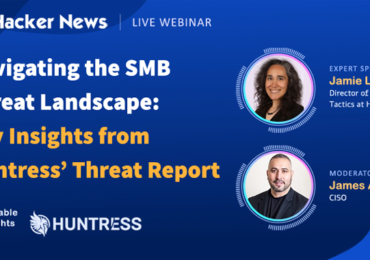Digital security is about so much more than malware. That wasn’t always the case.
When I started Malwarebytes more than 16 years ago, malware was the primary security concern—the annoying pop-ups, the fast-spreading viruses, the catastrophic worms—and throughout our company’s history, Malwarebytes routinely excelled against this threat. We caught malware that other vendors missed, and we pioneered malware detection methods beyond the signature-based industry standard.
I’m proud of our success, but it wasn’t just our technology that got us here. It was our attitude.
At Malwarebytes, we believe that everyone has the right to a secure digital life, no matter their budget, which is why our malware removal tool was free when it launched and remains free today. Our ad blocking tool, Browser Guard is also available to all without a charge. This was very much not the norm in cybersecurity, but I believe it was—and will always be—the right thing to do.
Today, I am proud to add to our legacy of empowering individuals regardless of their wallet by releasing a new, free tool that better educates and prepares people for modern threats that abuse exposed data to target online identities. I’d like to welcome everyone to try our new Digital Footprint Portal.
See your exposed data in our new Digital Footprint Portal.
By simply entering an email address, anyone can discover what information of theirs is available on the dark web to hackers, cybercriminals, and scammers. From our safe portal, everyday people can view past password breaches, active social media profiles, potential leaks of government ID info, and more.
More than a decade ago, Malwarebytes revolutionized the antivirus industry by prioritizing the security of all individuals. Today, Malwarebytes is now also revolutionizing digital life protection by safeguarding the data that serves as the backbone of your identity, your privacy, your reputation, and your well-being online.
Why data matters
I can’t tell you how many times I’ve read that “data is the new oil” without reading any explanations as to why people should care.
Here’s my attempt at clarifying the matter: Too much of our lives are put online without our control.
Creating a social media account requires handing over your full name and birthdate. Completing any online shopping order requires detailing your address and credit card number. Getting approved for a mortgage requires the exchange of several documents that reveal your salary and your employer. Buying a plane ticket could necessitate your passport info. Messaging your doctor could involve sending a few photos that you’d like to keep private.
As we know, a lot of this data is valuable to advertisers—this is what pundits focus on when they invoke the value of “oil” in discussing modern data collection—but this data is also valuable to an entirely separate group that has learned to abuse private information in novel and frightening ways: Cybercriminals.
Long ago, cybercriminals would steal your username and password by fooling you with an urgently worded phishing email. Today, while this tactic is still being used, there’s a much easier path to data theft. Cybercriminals can simply buy your information on the dark web.
That information can include credit card numbers—where the risk of financial fraud is obvious—and even more regulated forms of identity, like Social Security Numbers and passport info. Equipped with enough forms of “proof,” online thieves can fool a bank into routing your money elsewhere or trick a lender into opening a new line of credit in your name.
Where the risk truly lies, however, is in fraudulent account access.
If you’ve ever been involved in a company’s data breach (which is extremely likely), there’s a chance that the username and password that were associated with that data breach can be bought on the dark web for just pennies. Even though each data breach involves just one username and password for each account, cybercriminals know that many people frequently reuse passwords across multiple accounts. After illegally purchasing your login credentials that were exposed in one data breach, thieves will use those same credentials to try to log into more popular, sensitive online accounts, like your online banking, your email, and your social media.
If any of these attempts at digital safe-cracking works, the potential for harm is enormous.
With just your email login and password, cybercriminals can ransack photos that are stored in an associated cloud drive and use those for extortion. They can search for attachments that reveal credit card numbers, passport info, and ID cards and then use that information to fool a bank into letting them access your funds. They can pose as you in bogus emails and make fraudulent requests for money from your family and friends. They can even change your password and lock you out forever.
This is the future of personal cybercrime, and as a company committed to stopping cyberthreats everywhere, we understand that we have a role to play in protecting people.
We will always stop malware. We will always advise to create and use unique passwords and multifactor authentication. But today, we’re expanding our responsibility and helping you truly see the modern threats that could leverage your data.
With the Digital Footprint Portal, who you are online is finally visible to you—not just cybercriminals. Use it today to understand where your data has been leaked, what passwords have been exposed, and how you can protect yourself online.
Digitally safe
Malwarebytes and the cybersecurity industry at large could not have predicted today’s most pressing threats against online identities and reputations, but that doesn’t mean we get to ignore them. The truth is that Malwarebytes was founded with a belief broader than anti-malware protection. Malwarebytes was founded to keep people safe.
As cybercriminals change their tactics, as scammers needle their way onto online platforms, and as thieves steal and abuse the sensitive data that everyone places online, Malwarebytes will always stay one step ahead. The future isn’t about worms, viruses, Trojans, scams, pig butchering, or any other single scam. It’s about holistic digital life protection. We’re excited to help you get there.

 Apache Tomcat compromised to spread malware by Andariel APT. (Credit: Ahnlab)[/caption]
Apache Tomcat compromised to spread malware by Andariel APT. (Credit: Ahnlab)[/caption]

 Source:
Source: 









